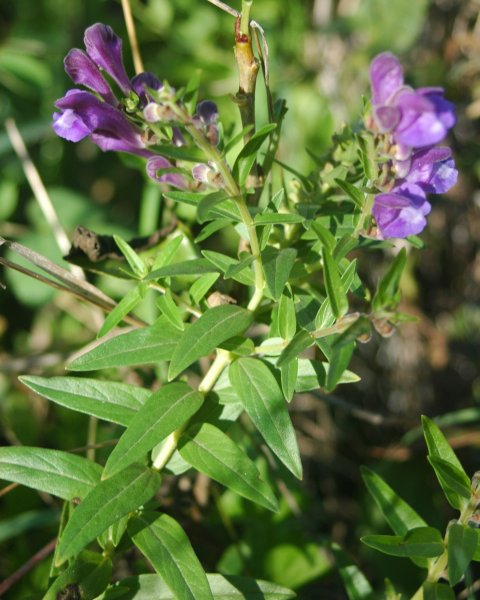 Baikal skullcap (Scutellaria baicalensis) is a flowering plant that belongs to the Lamiaceae or mint family of plants. However, it should be distinguished from American skullcap, which belongs to the same group of plants, but is a different species and may have different phytochemistry. Baikal skullcap is native to parts of Asia including China, Korea and Mongolia as well as parts of Russia and Siberia. The plant is medicinally important and is used in traditional medicine. Evidence suggests that baikal skullcap possesses good antioxidant properties, and this may relate to the presence of a number of phytochemical groups, particularly the flavonoids, which are present in the plant in high concentrations. The flavone baicalein and its glycoside baicalin have been identified as possibly contributing to this antioxidant activity significantly and this may be due to the presence of hydroxyl groups on the A rings. However, a number of other flavonoids may also explain its mood elevating properties.
Baikal skullcap (Scutellaria baicalensis) is a flowering plant that belongs to the Lamiaceae or mint family of plants. However, it should be distinguished from American skullcap, which belongs to the same group of plants, but is a different species and may have different phytochemistry. Baikal skullcap is native to parts of Asia including China, Korea and Mongolia as well as parts of Russia and Siberia. The plant is medicinally important and is used in traditional medicine. Evidence suggests that baikal skullcap possesses good antioxidant properties, and this may relate to the presence of a number of phytochemical groups, particularly the flavonoids, which are present in the plant in high concentrations. The flavone baicalein and its glycoside baicalin have been identified as possibly contributing to this antioxidant activity significantly and this may be due to the presence of hydroxyl groups on the A rings. However, a number of other flavonoids may also explain its mood elevating properties.

The medicinal properties of baikal skullcap likely relate to the phytochemicals it contains. These include flavonoids such as baicalein (and its glycoside baicalin), wogonin, norwogonin and oroxylin. These flavonoid likely give baikal skullcap antioxidant and anti-inflammatory effects, both of which may help explain the benefits of the plant against mood disorders. Other phytochemicals in baikal skullcap have been identified including the phytosterol β-sitosterol but it is unclear what role these may play in the medicinal effects. Image is baikal skullcap. Image from: By Doronenko – Own work, CC BY 3.0, https:// commons.wikimedia.org/ w/ index.php?curid=2763048.
For example, in one study researchers investigated the anxiolytic effects of the flavonoid wogonin from baikal skullcap. Administration of wogonin significantly decreased the anxious behaviour of mice that were exposed to experimental stress. In other experiments, wogonin showed an affinity for the GABAA receptor in cell culture studies and this affinity was blocked by addition of a GABA antagonist drug. This suggests that flavonoids in baikal skullcap may interact with GABA receptors in mammals and this may exert anxiolytic effect on animals. In another study, wogonin was shown to be effective at preventing convulsions in experimental models suggesting that it has significant central nervous system effects, likely through the GABA system. In another study, the flavonoid baicalein from baikal skullcap was shown to increase the duration of drug induced sleep suggesting it has sedative effects. Further, the same study also demonstrated that baicalein also had significant anxiolytic effects in mice.
Eat Well, Stay Healthy, Protect Yourself
RdB
